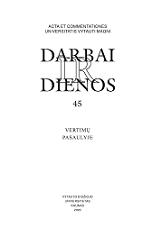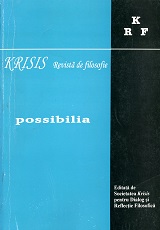
Abraomas Kulvietis Italijoje ir Lietuvoje
Although the early biographies and reconstructions of the activity of Abraomas Kulvietis (about 1510–1545), the pioneer of Lithuanian Reformation, were written in the 16th century (i.e. Oratio funebris by Ioannes Hopius, published in Königsberg in 1547, and the biographical outline of Ioannes Wigandus, written in 1582–1587), there still remain many unconfirmed facts in Kulvietis’ biography. Oratio funebris by I.Hopius mentions the trip to Italy and the law studies at the University of Siena as an important event of Kulvietis’ intellectual biography. Nevertheless, no documents on A.Kulvietis’ studies at the University of Siena as well as on the date and range of his studies were known to the representatives of the Lithuanian reformation historiography. The facts about Kulvietis’ return from Italy in 1539 and the founding of the first private protestant college in Vilnius in 1539–1540 were universally accepted as real. The article presents a document on the doctorate of A.Kulvietis at the University of Siena. It is an entry about Kulvietis’ doctorate in the 16th doctorate record book of the University of Siena which is preserved in the Archivio Arcivescovile di Siena (Archibishopric Archive of Siena).
More...
